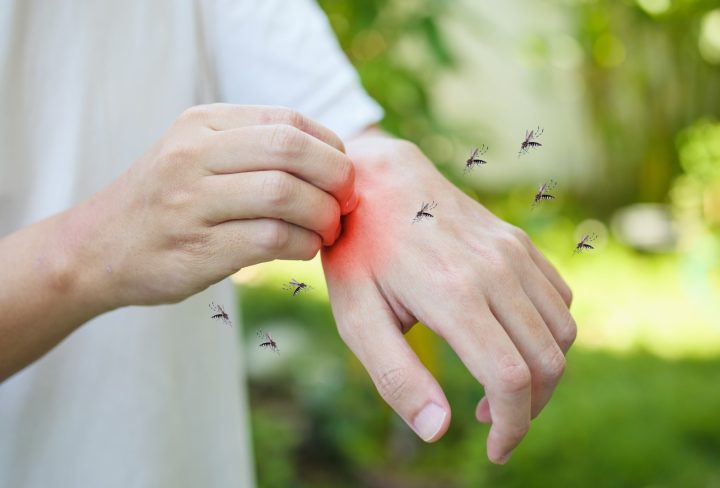Dengue is a viral infection caused by the Dengue virus, which is transmitted to humans by the bite of infected Aedes mosquitoes. Dengue fever can range from a mild flu-like illness to a severe and potentially life-threatening disease called severe dengue or dengue hemorrhagic fever (DHF).
Signs and symptoms
Symptoms of Dengue can range from mild to severe and may include:
- High fever
- Severe headache
- Pain behind the eyes
- Joint and muscle pain
- Fatigue
- Nausea
- Vomiting
- Skin rash
- Mild bleeding (such as nose or gum bleeding)
Causes of Dengue
Dengue is caused by the Dengue virus, which is transmitted to humans by the bite of infected Aedes mosquitoes. There are four different serotypes of the Dengue virus, and infection with one serotype does not provide immunity to the other serotypes.
How is Dengue Diagnosed?
Dengue is diagnosed through a blood test that detects the presence of the Dengue virus or antibodies to the virus. Early detection and diagnosis are important for proper management and treatment of the disease.
How is Dengue Treated?
There is no specific treatment for Dengue, and most people with mild cases will recover on their own with rest, hydration, and symptomatic treatment for pain and fever. In severe cases, hospitalization may be necessary, and treatment may include intravenous fluids, blood transfusions, and supportive care.
How can Dengue be Prevented?
The best way to prevent Dengue is to avoid mosquito bites. This can be done by:
- Wearing long-sleeved shirts and pants
- Using mosquito repellent on exposed skin
- Sleeping under a mosquito net
- Removing standing water where mosquitoes breed
- Keeping doors and windows closed or screened.
What is the recovery from Dengue like?
Most people with Dengue will recover fully within 2-7 days with rest, hydration, and symptomatic treatment for pain and fever. However, some people may experience a prolonged period of fatigue and weakness that can last for several weeks or months.
When does Dengue become serious?
Dengue can become serious and potentially life-threatening if it progresses to severe dengue or DHF. Symptoms of severe dengue may include severe abdominal pain, persistent vomiting, rapid breathing, bleeding gums or nose, fatigue, and restlessness. Early recognition and treatment of severe dengue are critical to prevent complications and death.


